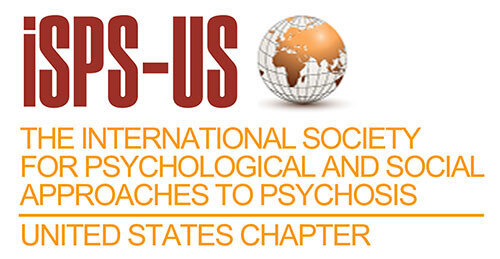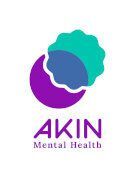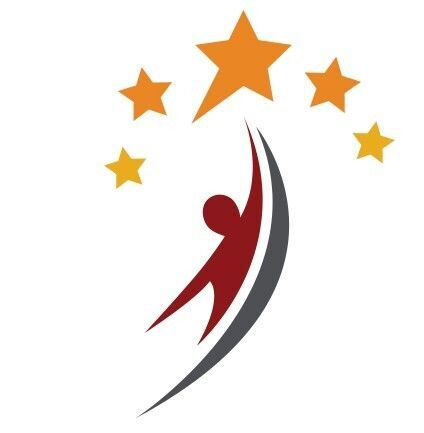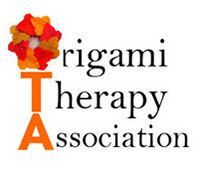- Advocacy Unlimited, Inc.
- Akin Mental Health
- Consumer Quality Team of Maryland
- INSPIRE Training
- Institute for the Development of Human Arts
- International Society for Ethical Psychology and Psychiatry (ISEPP)
- The Judah Robinson Foundation, NFP
- Kitsap Mental Health Services
- Origami Therapy Association
- VOA Utah Assertive Community Treatment
- Windhorse Integrative Mental Health
-
114 W. Main Street Suite 201
New Britain, CT 06051860-505-7581
mfissel@advocacyunlimited.org
advocacyunlimited.orgAdvocacy Unlimited is a peer-run Connecticut non-profit, focused on 6 key initiatives: recovery support, peer specialist training and certification, community education on systems and individual advocacy, stress management, holistic wellness, and specialized programming for young people. AU staff possess unique insights, gained through personal lived experience of navigating mental health systems, addiction, and trauma. These insights are honed through training and educational opportunities, and inform our work promoting individual growth, human rights, and systems transformation. Our team envisions a world in which everyone regardless of socio-economic status or personal history ? has space to be seen, heard, and valued.
-
hello@akinmh.com
www.akinmh.comAkin Mental Health is a family-focused digital company that is owned and operated by family peers with expertise by experience and by training in best practices for family support. Akin serves (broadly-defined) family members whose loved ones experience challenges associated with diagnoses like serious mental illness, psychosis, or other extreme states.
Akin members receive a free one-week trial with easy cancellation and are invited to 1-on-1 support calls, weekly group sessions, online written and video education and support contents, and selected reliable sources of helpful information. Akin is constantly reflecting and growing, and we look forward to learning from and contributing to the conversation at ISPS-US.
Please visit www.akinmh.com to learn more.
-
1301 York Rd, #505
Lutherville, MD 21093443-901-1560
kwyer@cqtmd.org
www.cqtmd.orgThe Consumer Quality Team (CQT), a program of The Mental Health Association of Maryland, employs people with lived experience of behavioral health disorders who interview consumers in Maryland’s public behavioral health system about their satisfaction with the services provided. CQT visits all publicly funded psychiatric hospitals, day programs, wellness and recovery centers, and youth residential treatment programs. They are also completing pilot programs interviewing individuals in substance use recovery centers, as well interviewing those who are utilizing residential crisis services.
CQT’s process empowers consumers to be full participants in their own care. In this way, CQT works to reduce alienation and disengagement and honors the insight and wisdom of those who may be experiencing un-shared reality. Their work cultivates consensus about the public behavioral health system by addressing the 5 R’s of Citizenship: Rights, Responsibilities, Roles, Resources, and Relationships. -
Department of Psychiatry and Behavioral Sciences
Stanford University School of Medicine
401 Quarry Rd
Stanford, CA
94305-5723https://med.stanford.edu/inspire-training.html
khardy@stanford.eduINSPIRE training offers specialized training in Cognitive Behavioral Therapy for psychosis (CBTp) and other psychosocial interventions for clinicians who support individuals with complex mental health needs.
-
contact@idha-nyc.org
www.idha-nyc.orgThe Institute for the Development of Human Arts (IDHA) is a community of mental health workers, clinicians, psychiatrists, current and prior users of mental health services, advocates, artists, and survivors of trauma and adversity, who are interested in exploring the link between personal and societal transformation.
Our mission is to create opportunities for critical dialogue, mutual support, and advanced education and training for those within and outside the field. We aim to widely proliferate an understanding of transformative mental health that acknowledges and addresses the numerous contexts in which our mental health exists, understanding not only the role of personal traumatic experiences but also structural injustices and oppression that have deep historical roots in our society. -
PO Box 15120
Washington, DC 10003
psychintegrity@gmail.com
psychintegrity.orgThe International Society for Ethical Psychology and Psychiatry, Inc. (ISEPP) is a 501(3)(c) non-profit volunteer organization of mental health professionals, physicians, educators, ex-patients and survivors of the mental health system, and their families. We are not affiliated with any political or religious group.
Our mission is to use the standards of scientific inquiry to address the ethics of psychology and psychiatry. We strive to educate our members and the public about the nature of mental illness, the de-humanizing and coercive aspects of many forms of mental health treatment, and the alternative humane ways of helping people who struggle with very difficult life issues. We believe this is essential since one of the most cherished principles in the mental health field is informed consent. That means you should be fully and honestly informed about the problems you are experiencing, and the full risks and benefits of any treatment, before making truly voluntary decisions about your care. Our goal is to fully inform you.At the heart of our critique is the fact that mental illnesses are not literal illnesses like diabetes and cancer. Despite popular media portrayal, decades of scientific research have failed to demonstrate any biological pathology that causes mental illness. For this reason, they should not be considered medical problems and traditional medical treatment is not a solution. In particular, psychiatric drugs only temporarily mask emotions. Not only does this masking prevent people from understanding their problems and making important life changes, these drugs carry with them a whole host of dangerous effects that typically are not explained to the user when prescribing them.
-
143 South Lincoln Avenue, Suite L
Aurora, Illinois 60505
331.452.1985
https://www.judahrobinsonfoundation.org/In 2018 the Judah Robinson Foundation, NFP, was founded by Dr. Amanda Goldman, LCPC, in honor of her late brother Judah Robinson Aller, who never had a chance to speak or express himself. The mission of the Foundation is to give voice to individuals impacted by homelessness and chronic or severe mental illness, who may similarly struggle to give voice to their experiences or to be understood.
Dr. Goldman is internationally recognized for her work with schizophrenia, and has over 20 years experience as a counselor.
-
KMHS Main Campus (Almira Drive NE in Bremerton)
Kitsap Mental Health Services
5455 Almira Drive NE
Bremerton, WA 98311360-373-5031 or Toll Free 1-888-816-0488
TDD Number: 360-478-2715
https://www.kitsapmentalhealth.org/KMHS provides compassionate, expert treatment to more than 6,500 people each year, including children, teens, families and adults of all ages. Our mental health and substance use treatment programs are carefully tailored to the unique needs of each person we serve and are designed with recovery in mind. We know from experience that mental illnesses and substance use disorders are treatable and that it’s possible to return to a full, vibrant life.
-
https://www.facebook.com/OrigamiTherapyAssociation/
The Origami Therapy Association (OTA) was founded in order to promote the therapeutic use of origami, to develop the applications of origami in helping to build communities, and for furthering research pertaining to the therapeutic benefits of origami.
‘Origami’ is the Japanese term for paper folding; however, OTA aims to emphasize that origami is a universal and readily accessible art-form. Origami is open to all people and encourages to be involved and which is essential in terms of its community building potential.
Origami is able to adapt to the needs of a broad spectrum of populations, regardless of cultures, backgrounds, ages, genders, languages, or education. As origami is a nonverbal means beyond languages at the same time it promotes our creative expressions and grounding our free floating ideas in concrete forms. Because origami activity incorporates sensory skills and motor functions directly connected to the brain, it is one of the best ways to build the ability to focus and solve problems.
It can be used not just for the wellbeing of us all but also for the Aging/Elderly population, for those who need to develop social skills, and for survivors of severe life (traumatic) experiences. Origami is magical, fun, and contemplative to all.
The mission of the OTA is to provide individuals, groups, and communities, -all those who are in need of therapeutic support - to become whole as the basic being.
OTA runs monthly origami workshops. Everyone is invited!
-
Phone: 801.355.2846 (ext. 527)
susan.pinegar@voaut.org
https://www.voaut.org/actVolunteers of America, Utah's Assertive Community Treatment (ACT) is a “hospital without walls” model. ACT uses a multidisciplinary team approach to provide intensive, integrated services where and when our clients need them—in their homes, at work and in other community settings.
Volunteers of America, Utah's ACT Team members directly provide services that are individually tailored with each client and address their specific preferences and goals. The approach with each client emphasizes relationship building and active involvement in assisting clients to make improvements in functioning, to better manage symptoms, to achieve individual goals and to maintain optimism.
-
211 North Street, Suite #1
Northampton, MA 010601411 Marsh Street, Suite #103
San Luis Obispo, CA 934012120 Southwest Jefferson St Suite 300
Portland, OR 97201800-319-8261
admissions@windhorseimh.org
www.windhorseimh.orgWindhorse Integrative Mental Health is a therapeutic community approach to recovery for individuals struggling with psychiatric disturbances. The services at Windhorse Integrative Mental Health are individually tailored in close communication with each client and family, and represent a wide range of intensity and structure.
- For a person needing intensive support, we offer a full clinical team that works with clients in an apartment they share with a non-clinical Windhorse housemate, located in the local community.
- For a person wishing to remain at home locally or who can manage their own apartment, working with a smaller team or a single clinical mentor might be most beneficial.
All services are fully integrated with the community. Windhorse programs have been successful in the following ways:
- Reduced hospitalization
- As an alternative to group care
- For structured support in daily living towards greater independence and significant recovery.










